What's in a name? That which we call a rose
By any other name would smell as sweet. -W. Shakespeare
After writing about the 80th Birthday of Pluto becoming a planet, I was asked about Pluto's planetary status, and whether I thought it deserves to be a planet or not. Let me just recap for you, very briefly, what this argument is all about.
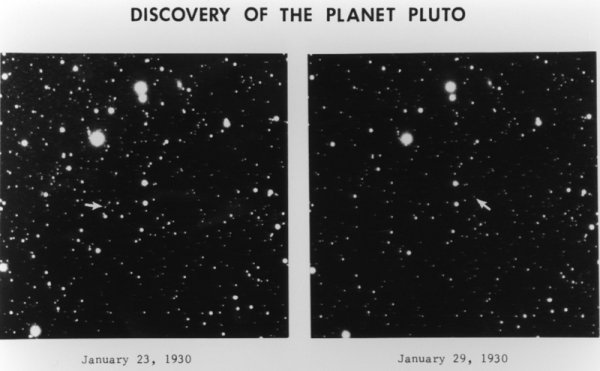
Pluto, when it was discovered back in 1930, was the only object in the Solar System found out beyond Neptune. Although we imaged it, observed it, and surveyed the whole sky for other objects, it remained the only Solar System object out beyond Neptune until the 1970s, when Pluto's giant moon, Charon, was discovered.
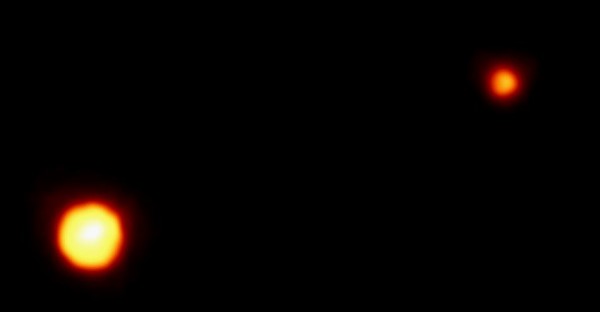
But this all changed severely in the 1990s. A whole zoo of "trans-Neptunian" objects were discovered, many of them of comparable mass and size to Pluto. In 2003, Eris was discovered, and this was big news to people who were worried about what counts as a planet and what doesn't. Why? Because Eris was larger than Pluto!
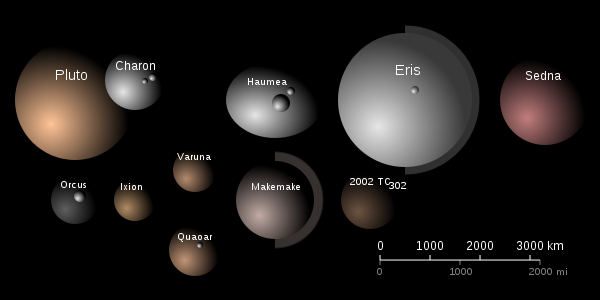
So, the argument went, if Pluto was a planet, then Eris needed to be one also. If Eris wasn't a planet, then Pluto couldn't be one either. So what do we do? For nearly three generations, we all learned that there were nine planets in the Solar System; was it necessary to change all of that?
Putting aside what the IAU decided -- which was to demote Pluto to "dwarf planet" and promote Eris and others to "dwarf planet" -- let's think about it. What's really going on in our Solar System?
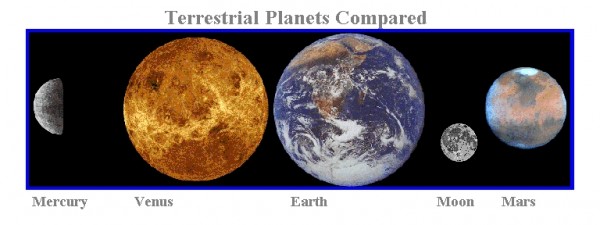
Close to the Sun, we've got four rocky planets -- two with moons -- and nothing else. If there's anything interesting going on from the Sun out to about 300,000,000 km away, it's probably happening on Mercury, Venus, Earth, Earth's Moon, Mars, or (possibly) Mars' moons Phobos and Deimos. So it makes sense to have four inner planets. Beyond that?

But the Solar System is much more than just these four inner planets and the four outer planets, isn't it?
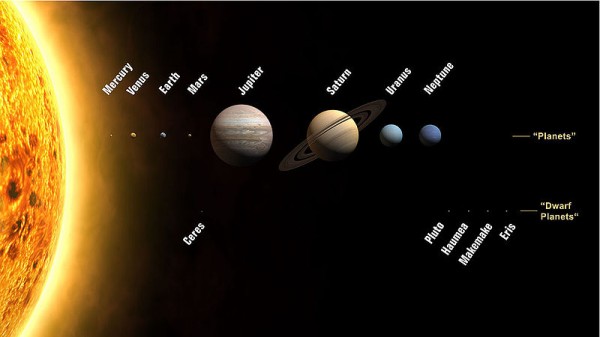
In between Mars and Jupiter, we've got thousand upon thousands of asteroids, moving too quickly and of too low a mass to merge into a giant planet, much the same way Saturn's rings won't merge into a giant Moon. The largest of these asteroids is almost 1000 km across, and massive enough to have pulled itself into a sphere! Say hello to Ceres, as seen by Hubble.
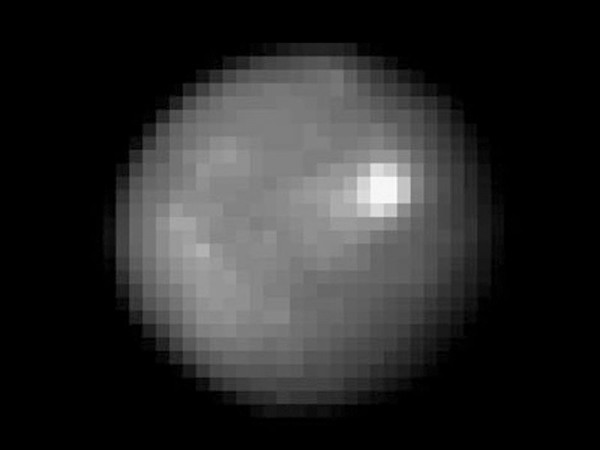
Out beyond Neptune, there's Pluto, Eris, Makemake, Haumea, and many other large bodies in the Kuiper belt, in addition to a bunch of smaller frozen rocks, some of which will one day become moons of the gas giants or comets!
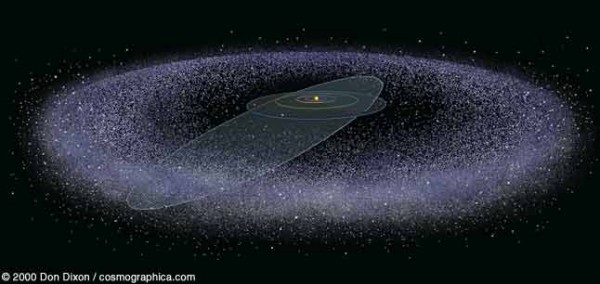
Does the fact that Pluto lives in the Kuiper belt make it less special than if it were the only one out there? Does the fact that Ceres isn't a standalone object, but has a whole host of neighbors make it less special than if it were on its own? Does Saturn's moon Titan -- with an atmosphere thicker than Earth's -- become any less special in your eyes because it wasn't able to eat up Saturn's rings with its own gravity?
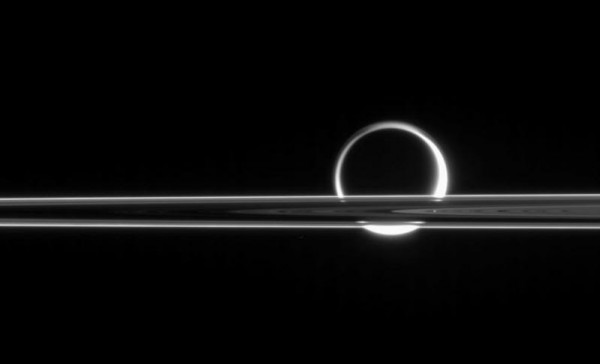
The answer to all of these questions, of course, is no. These objects are special based on their own merits, not because of what's going on around them. And if you don't like the fact that the IAU called Pluto a "dwarf planet," just call it "the planet Pluto." The purpose of language is to communicate, and to be understood. I don't adhere to MLA writing rules when they don't suit me, and I think it's the height of foolishness to expect that people will stop calling Pluto a planet (or stop thinking of it as a planet) when they refer to it.
So a recap of my thoughts? Call it whatever you want. It's a fascinating member of our Solar System, the first trans-Neptunian object ever discovered, the pioneer in our understanding of the Kuiper Belt, and it remains an ignition switch to some of the best parts of our imaginations. If you want to say "dwarf planet Pluto," we can still have a good chat about it, and the same goes if you say "the ninth planet," "the former planet," or just "Pluto." It doesn't change what it is, or how much we all care about it, and that fact is more powerful than any IAU ruling will ever be. Pluto has better things to do than care about whether you call it a planet or not.
So call it whatever you want; if I were Pluto, I'd be too busy orbiting the Sun.

Does Pluto really have better things to do? It doesn't get a choice about orbiting. It doesn't have thumbs to twiddle. Caring about whether we call it a planet (or "Pluto") might give it something to think about, if indeed it has anything to think with.
It's rather presumptuous to have named it at all.
First, I want to thank you so much for all of your very interesting, very basic, and very informative explanations of modern astronomy's workings.
Second, thanks for not issuing a Fatwah either way about Pluto. For me, it'll always be a full blown planet, for nostalgia's sake, even though I get the arguments against that. For others, they'll be happy to call it a dwarf planet. But either way, as you say, as long as you get the point across, the rest is just labels.
Yeah, Pluto...you rock!
My Google foo is weak today, is there an accurate graphic that shows the heliocentric coordinates of all major solar system bodies in one picture...In most artistic graphics they show Pluto on a renigade orbit compared to the other bodies, I suppose Eris is a rebel too!
Are Uranus and Neptune really gas giants (like Jupiter and Saturn)? Their atmospheres are much less substantial. Giant planets certainly.
I'm not sure why anyone thinks the IAU was trying to legislate ordinary, or even scientific, speech.
Bureaucratically, they needed a way to decide internally which committee is responsible for naming what; commendably but perhaps prematurely, they decided to try to set the decision on a scientific foundation; unfortunately (and encouraged by the media), they folded in a public education element; but they never claimed the resolution was binding on anything except IAU internal processes.
It wasn't given that classification because Oompa-Loompas were discovered on it?
@waynerobinson4: They're far bigger than the earth and they're composed (at least the outer part which we can observe) of substances which are commonly found in the gaseous state within earth's own atmosphere. So they're "gas giants" even though the bulk of the outer parts of the planets are not in gaseous form (though a little will be gaseous just as ice on earth gives up water in gas form).
Great blog Ethan! Keep these posts comin'!
I'm surprised the "Pluto should be a planet at all costs" woman isn't here yet (I forget her name).
Great post, Ethan. Exactly what I've been telling people. It doesn't matter what you call it. The IAU made their decision. Does each of us automatically kowtow to the IAU over everything? As long as your audience grasps your intentions, I don't see a problem anywhere.
Yes, the point is to think of the solar system not as 9 planets orbiting the sun, but as a collection of bodies of various forms, compositions, and orbits. I'd rather think of it this way than stick with old habits just because that's what I learned growing up. Resisting change is not conducive to learning.
The problem lies in the way we learned about the planets growing up. We all learned that there are nine planets orbiting the sun. Imagine my surprise when I learned that we have an asteroid belt, just like in Empire. Wow, and then we learn about the Kuiper belt, objects bigger than Pluto? Whaaaa?! We need to tweak science education so that we don't get caught up in keeping everything in neat little boxes, but be able to grow and adapt to new knowledge and discoveries.
A lot of the hoopla came from loyalty towards a perceived denigration of the discoverer, and the attachment we have to the character Pluto. Although naming went from mythology - planet- disney character, most people will associate it with the cartoon dog.
I like to think of our solar system as a motley collection of similar groupings of objects, but some broad definitions are useful too because it does give you a significant amount of information just by knowing which general category an object may fit into.
I prefer not to think of Pluto as the last planet, or the downgraded planet, but the First of the Kuiper belt objects. Still, an amazing, amazing discovery.
I went to grade school with a family member of the man that discovered Pluto. We got to hear him talk to us (the whole 1st grade class)on a long distant phone call. It was one of those things that as kids...we really didn't realize or understand how cool it was to hear the dude.
I remember hearing that Indiana (I think it was that state) passed a law that whenever Pluto passes over the state, its considered a planet. I guess its their version of state pride. Beats us in Baltimore being proud of the gritty depiction of the city in "The Wire".
I'm not sure why anyone thinks the IAU was trying to legislate ordinary, or even scientific, speech.
The Titan analogy fails because it isn't orbiting in amongst the rings (unlike some of the small inner moons, like Pan or Daphnis, although even these orbit within gaps, indicating some degree of clearance going on). Certainly it is clearly not the member of a belt of objects all orbiting Saturn at a similar distance.
Incidentally I don't see much of a campaign to include the major moons in the list of planets: if orbital location is truly to be considered an irrelevant consideration then the fact that these objects orbit planets should be irrelevant too. I often see the "but if you put Earth out at 100 AU, it wouldn't be a planet", but then if you capture a large Kuiper Belt object (exactly the kind of thing the pro-Pluto people want to call planets) into orbit around Neptune it isn't a planet either. Forget Pluto, who mourns for Triton?
Mercury! Venus Earth! and Mars! in between them are all these stars!!!! Jupiter! Saturn! are not hot! but who cares about those me surely not!! Uranus and Neptune are both last and those both are out of that! lalalalalalalalala! lalalalalalalaaaaala!!!!!!!!!!
Of course, my favorite part was when they tried to split the baby by calling them "Plutons". Forgot to Google the word first...
If pluto isn't a planet, then will disney have to change the name of that weird dog-like character of theirs? http://www.onlineforextradingstrategy.com/forex-trading-signals.html
My Google foo is weak today, is there an accurate graphic that shows the heliocentric coordinates of all major solar system bodies in one picture...In most artistic graphics they show Pluto on a renigade orbit compared to the other bodies, I suppose Eris is a rebel too! http://www.mortgagebaltimoremaryland.com I like to think of our solar system as a motley collection of similar groupings of objects, but some broad definitions are useful too because it does give you a significant amount of information just by knowing which general category an object may fit into.
Whether or not it's a planet may be relevent to some, but it'll be a long time trying to explain to millions os kids taught otherwise- not really worth the effort is it? http://www.purchaseinsurance.info
Hey, you don't really need to explain kids that the planet is relevant somewhere... You just need to make it interesting for them and they'll wounder themselves. Solar system is on of the most interesting topics studied at school and sometimes it is enough a few words to make children like the topic.
I went to grade school with a family member of the man that discovered Pluto. We got to hear him talk to us (the whole 1st grade class)on a long distant phone call. It was one of those things that as kids...we really didn't realize or understand how cool it was to hear the dude.BMW WagonSo they're "gas giants" even though the bulk of the outer parts of the planets are not in gaseous form (though a little will be gaseous just as ice on earth gives up water in gas form).
I think, in most cases, if a body is basically round and orbiting the sun on it's own (without orbiting another body which would make it a moon), then it is a planet. Only bodies with enough mass to make it round should be considered.
That would include stars, then.
And we'd have at least 16 and as many as 200 *currently observed* plants in our solar system.
We would exclude rocky planets because they're stronger and can withstand more force before being pulled into a more spherical form, whilst gas and ice planets which would be much less massive get included because they don't have the structural integrity to deviate from a sphere even under very low mass conditions.
For these reasons, the roundness (which is VERY hard to determine, unlike mass) was dropped as a suitable metric for deciding what a planet is.
Ok, I wouldn't be opposed to having 200 or even 1000 "planets" orbiting our sun. I'm sure we will find other solar systems with such amazing characteristics. Obviously, stars would be excluded from the "planet" category. I say we come up with "planet categories". "Rocky planets, dwarf planets, gas giant planets, irregularly shaped planets, ect. and categorize them also in size. In Star Trek, they did something similar. Class 4 planet, for example. I propose a size 1 through 10 planet scale as a possibility. A size one planet would have to have a certain size or mass and would otherwise not be considered in any planet category.
Thank you Ethan: Pluto is Pluto...A planet. I'm not going to snip off part of my solar system mobile because a bunch of bureaucrats start using "dwarf" as an astrophysical adjective. Instead, we need to be kind to the orb as it plows through dark matter, dark energy, emergent gravity and who knows what else. Pluto the planet. And I thank the stars for it.
It's not your solar system.
And they're not "a bunch of bureaucrats" (and why would it be wrong if they were?), they're the field experts and this meeting and the result was actually years in the making and months in the discussion, and all those who attended the AGM either voted or didn't care enough to turn up to vote.
It's no more a planet than Ceres is.
"Ok, I wouldn’t be opposed to having 200 or even 1000 “planets” orbiting our sun"
That would be because you'd be 100% able to avoid bothering with it. The IAU work in the field, however, and they don't get the choice of whether or not to work with the definition of planet and a list of some hundreds long.
So I think they should get the choice. You don't get to tell the engineers designing your car engine what to call "a car" that includes anything that moves around. They get to describe what a car is.